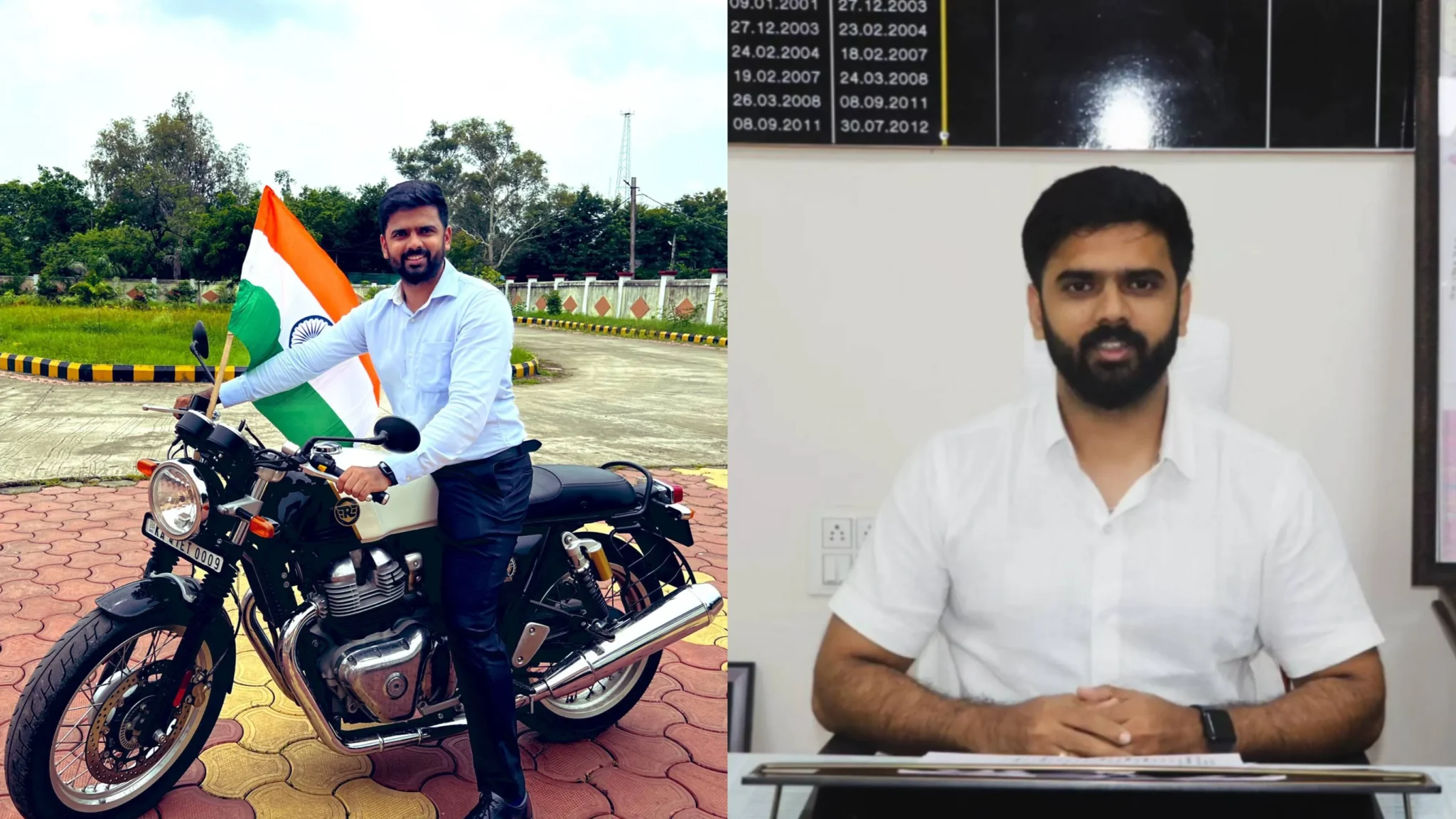In a media blitz over the last few days, RTI activist Anand Jat has accused IAS Nagarjun B. Gowda, currently serving as CEO of Khandwa District Panchayat, of using illicit funds to buy 8 acres in Bhopal, alleging that the land was purchased for ₹90 lakh in collusion with a local businessman. According to Jat, part of the parcel — 2 acres — belongs to Gowda, transacted at a rate of ₹45 lakhs.
Unsupported by clear documentary proof, the activist ties this acquisition to Gowda’s earlier conduct in Harda, where he reportedly reduced a ₹51.67 crore fine against PATH India to just ₹4,032. Jat has also claimed a ₹10 crore bribe offer, though no evidence has been presented publicly.
Gowda has responded by stating that any land purchased by a government servant must be cleared by authority, and that his acquisitions were done after required permissions. Still, the revived scandal has drawn media and public attention back to the question: how did such a drastic penalty reduction take place, and is the land deal legitimate?
FCRF Launches CCLP Program to Train India’s Next Generation of Cyber Law Practitioners
The Mining Fine That Sparked It All
The original dispute goes back to a PATH India contract in the Harda district, wherein a penalty of ₹51.67 crore was levied for alleged illegal mining. Later, the fine was reduced by 99.998%, leaving only ₹4,032 to be paid — a move that raised eyebrows across the state.
Supporters of Gowda say that he acted only after reviewing evidence and procedural flaws in the notice. Critics contend that such a steep reduction is hard to justify under any legal standard. As of now, no independent body has validated the allegations of bribery or unlawful reduction.
In response to the recent claims, local press outlets — including Aaj Tak — reportedly examined land records tied to the Bhopal parcel and traced it to a village in the Fanda Block called Dubara. Market guidance rates suggest the same land should be priced closer to ₹94.76 lakh under government norms — questioning whether the transaction was undervalued.
Power Couples, Public Persona & Media Pressure
The controversy also taps into public fascination with the so-called “IAS power couple”: Gowda’s wife, IAS Srushti Deshmukh, is herself a high-profile officer. Their combined following on social media and public appeal make accusations against Gowda especially potent among aspirants and civil service circles.
Yet, despite the virality of the claims, no legally compelling evidence has surfaced. In fact, a recent Times of India report suggested that Jat, when asked, admitted to lacking documentary proof of a ₹10-crore bribe. The report underscores how serious allegations, once lobbed in the public sphere, can gain disproportionate traction before facts are verified.
In the meantime, Gowda remains silent on many specifics, holding to his claim of legitimacy and permission. But the renewed outcry ensures the issue will remain in media crosshairs.
Questions in the Air & the Road Ahead
The revived controversy leaves many open-ended questions:
- Was the massive reduction of the mining penalty rigorous and within legal bounds?
- Are the allegations around the Bhopal land purchase supported by registration deeds, approvals, and financial trail?
- Will any investigative authority (CAG, Vigilance, or police) take up the matter independently?
- How does the public narrative shift the burden of proof in the court of opinion, even before formal inquiry?
Given the stakes — reputation, credibility, and public trust — this story demands more than headlines. It beckons forensic audit of documents, compliance review, and scrutiny of bureaucratic ethics. For now, the people of Madhya Pradesh and civil society will watch closely as the accusations, defenses, and demands for truth unfold in the days to come.



